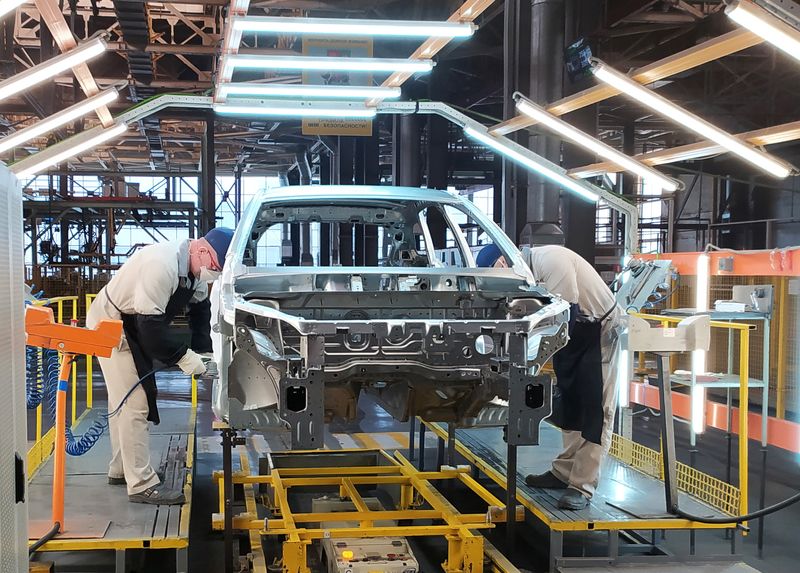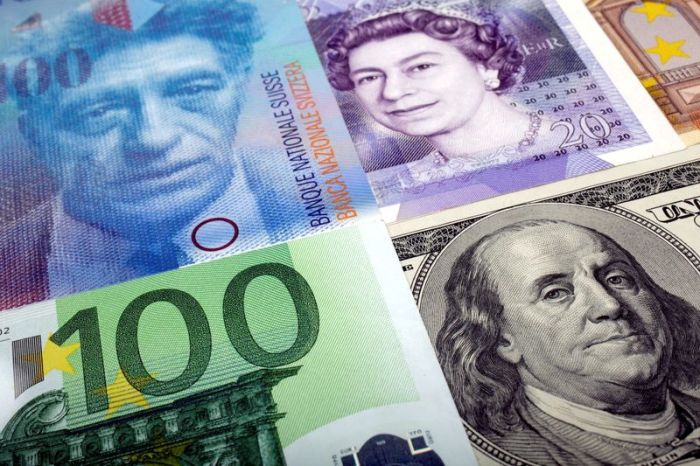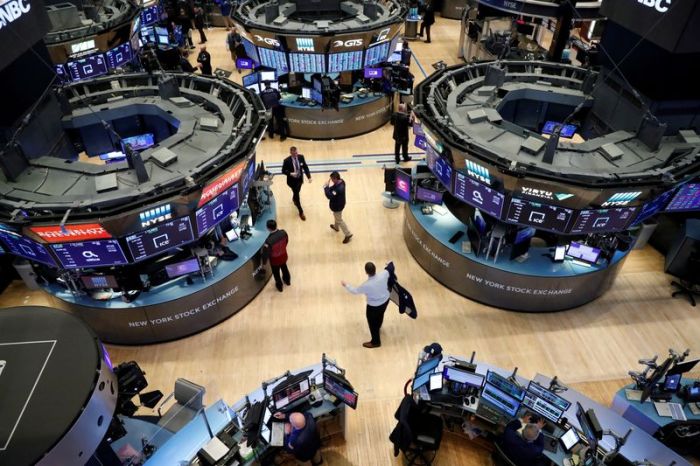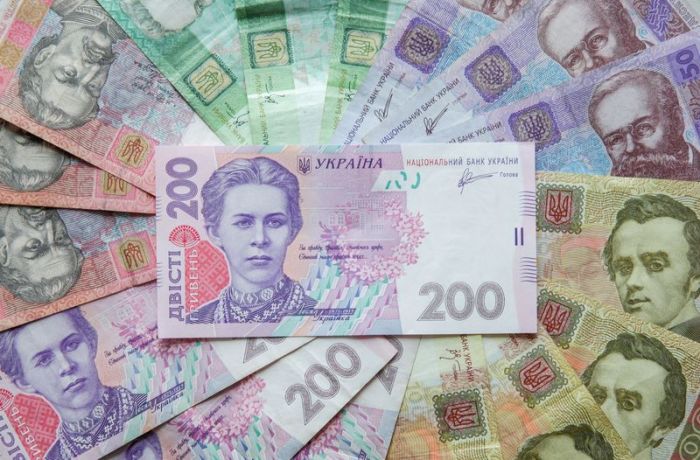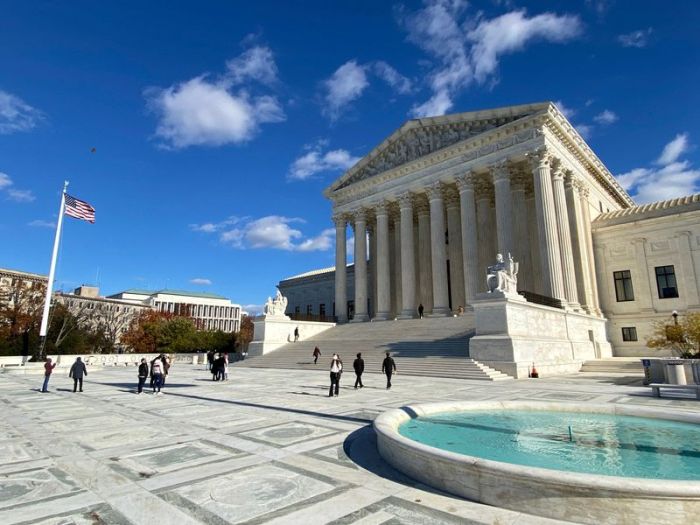(Reuters) – International companies with exposure to Russia are closely following Western sanctions on the country after an escalation in the Ukraine crisis.
Below are comments from some Japanese and European companies on the situation:
JAPANESE COMPANIES:
HITACHI LTD, CONSTRUCTION EQUIPMENT & POWER GRID BUSINESSES
The conglomerate has five engineering bases in Ukraine of GlobalLogic, which it acquired last year, and roughly 7,200 staff working in places including Kyiv and northeastern Kharkiv.
Hitachi said it does not expect a significant impact on those businesses and operations are continuing.
JAPAN TOBACCO, FIVE FACTORIES IN RUSSIA
Japan’s former tobacco monopoly relies on the Commonwealth of Independent States, including Russia and Belarus, for about a fifth of its profits.
Japan Tobacco employs about 4,000 people at its Russian plants, and its tax payments in 2020 accounted for 1.4% of the Russian Federation state budget, the company said on its website.
It has one factory in Kremenchuck, central Ukraine, where it has been expanding production. A spokesperson for the company said it was keeping an eye on developments.
MARUBENI CORP, TRADER WITH VARIOUS BUSINESS INTERESTS
The Japanese trading house has offices in the Ukraine capital Kyiv and in Dnipro in the east that trade in chemicals and fertilizers and distribute Hitachi Construction Machinery mining equipment.
Marubeni’s three Japanese workers in Ukraine have already left, a spokesperson said. It also has four offices in Russia, where it sells tyres for mining equipment and manages a health check-up centre.
MITSUBISHI CORP, TRADER WITH VARIOUS BUSINESS INTERESTS
It distributes Mitsubishi Motor vehicles through some 141 dealerships in Russia and has a stake Sakhalin II gas and oil development project that supplies Japan with liquefied natural gas (LNG) and trades coal, aluminium, nickel, coal, methanol, plastics and other material. It also supplies power plant equipment and other machinery.
A spokesperson for Mitsubishi Corp said its business interests in both Ukraine and Russia were small and declined to comment further.
RAKUTEN, OWNER OF MESSAGING APP VIBER USED IN UKRAINE
The e-commerce firm said it is “focused on maintaining connectivity for Viber users everywhere”. The app is used by 97% of Ukrainian smartphone users and the Japanese firm operates an office in Odessa with contractors and in Kyiv.
Rakuten said it has told contractors to prioritise their safety and will “accommodate their situations if they are prevented from working as usual.”
SBI HOLDINGS, OWNS SBI BANK IN RUSSIA
SBI Bank, established almost three decades ago, offers corporate services and loans to Japanese companies expanding operations in Russia.
A spokesperson for the financial conglomerate said it had contingency measures to continue its Russian business by using euro, yen and dollars payments with European banks.
TOYOTA, AUTOMAKER WITH FACTORY IN SAINT PETERSBURG
The company’s operations were unaffected, a spokesperson said. Toyota’s plant in Russia makes Camry and RAV4 vehicles, and it has a sales office in Moscow. It has about 2,600 people, including 26 Japanese nationals, at those locations.
EUROPEAN COMPANIES:
BASF, GERMAN CHEMICALS MAKER WITH 1% SALES FROM RUSSIA
“All employees in Ukraine are requested to work from home where possible and to avoid business travel. All of our employees in Russia continue to work as normal,” BASF said in a statement.
Last year, Ukraine accounted for 0.2% of BASF’s total sales.
COCA-COLA HBC, LONDON-LISTED BOTTLER WITH RUSSIAN OPERATIONS
“We have contingencies in place for all scenarios, including alternative sourcing, so that we can act swiftly,” Zoran Bogdanovic, chief executive of Coca-Cola HBC, told Reuters.
He said the soft drinks company, which operates in 29 European and African countries and counts Russia and Nigeria as its two biggest markets, had learned lessons from its experience during the 2014 Russian-Ukrainian conflict.
“We ensure that we have the right level of stocks in our markets to avoid disruptions.”
DANONE, WHICH GETS 6% SALES FROM RUSSIA
“Our local teams are monitoring the situation very closely with a view to ensure the security of employees,” a Danone spokesperson said.
The French company is the world’s largest yoghurt company and controls Russian dairy brand Prostokvashino. It mainly produces dairy products in Russia.
HEIDELBERGCEMENT, GERMAN COMPANY WITH THREE PLANTS IN RUSSIA
“We do not expect any major impact on our Russian business should the conflict escalate further. All of our three Russian cement plants supply their respective local/regional markets and do not export outside Russia,” a Heidelberg spokesperson said. The company sold its Ukraine operations in 2019.
INGKA GROUP, WHICH RUNS IKEA STORES AND MALLS WORLDWIDE
“Potential sanctions are likely to affect all international companies, including Ingka Group,” the company said in a statement.
METRO, GERMAN RETAILER WITH RUSSIAN OPERATIONS
“Our responsibility as a company in Russia lies primarily with our approximately 10,000 employees and 2.5 million customers,” a Metro spokesperson said, adding that the same concerns applied for Metro in Ukraine.
NESTLE, FOOD GROUP WITH FACTORIES IN RUSSIA
“(We) have business continuity plans in place that can be activated as needed. The safety and protection of our employees remains our highest priority. We will not speculate on any potential sanctions,” a Nestle spokesperson said.
As of 2020, the company had six factories in Russia, including plants making confectionary and drinks. Its 2020 sales from Russia were worth about $1.7 billion.
NESTE, FINNISH REFINER AND BUYER OF RUSSIAN OIL
“If sanctions are aimed at Russian crude oil and oil products, it will have an impact on the oil market globally. It is very difficult to define those impacts at this stage,” Sami Oja, interim leader of the oil products business at Neste, told Reuters. “If there were no Russian oil available, Neste would buy its crude oil in other markets.”
The company relies on Russia for two thirds of its oil needs.
“A significant part of Neste’s crude oil purchases are made on so-called spot markets, meaning one load at a time, and therefore we are able to react flexibly to changes in the markets in our purchases if necessary,” he said.
NOKIAN TYRES, WHICH HAS A PLANT AND WAREHOUSE IN RUSSIA
“We prepare for different scenarios as part of our normal risk-management work, and now we have intensified the work due to the current geopolitical situation, including availability planning,” a spokesperson said.
Nokian was prepared to transfer certain product groups between factories if the situation required.
RENAULT, WHICH HAS RUSSIAN JOINT VENTURE AVTOVAZ
Russian carmaker Avtovaz, controlled by France’s Renault, is seeking alternative supplies of electronic chips in case U.S. sanctions curb deliveries, Avtovaz CEO said, without indicating how Avtovaz secures chips for its car plants in Russia.
“At this stage, it is premature to estimate what could be the sanctions,” a Renault spokesperson said.
VOLKSWAGEN, GERMAN AUTOMAKER
“The degree of impact on our business activities in the affected countries is continuously determined. Regarding all activities on site, the safety and integrity of our employees is our top priority,” the company said in a statement.
(Reporting by Reuters bureaux; Compiled by Edmund Blair, Dave Dolan, Sayantani Ghosh; Editing by Carmel Crimmins, Gareth Jones and David Goodman)

